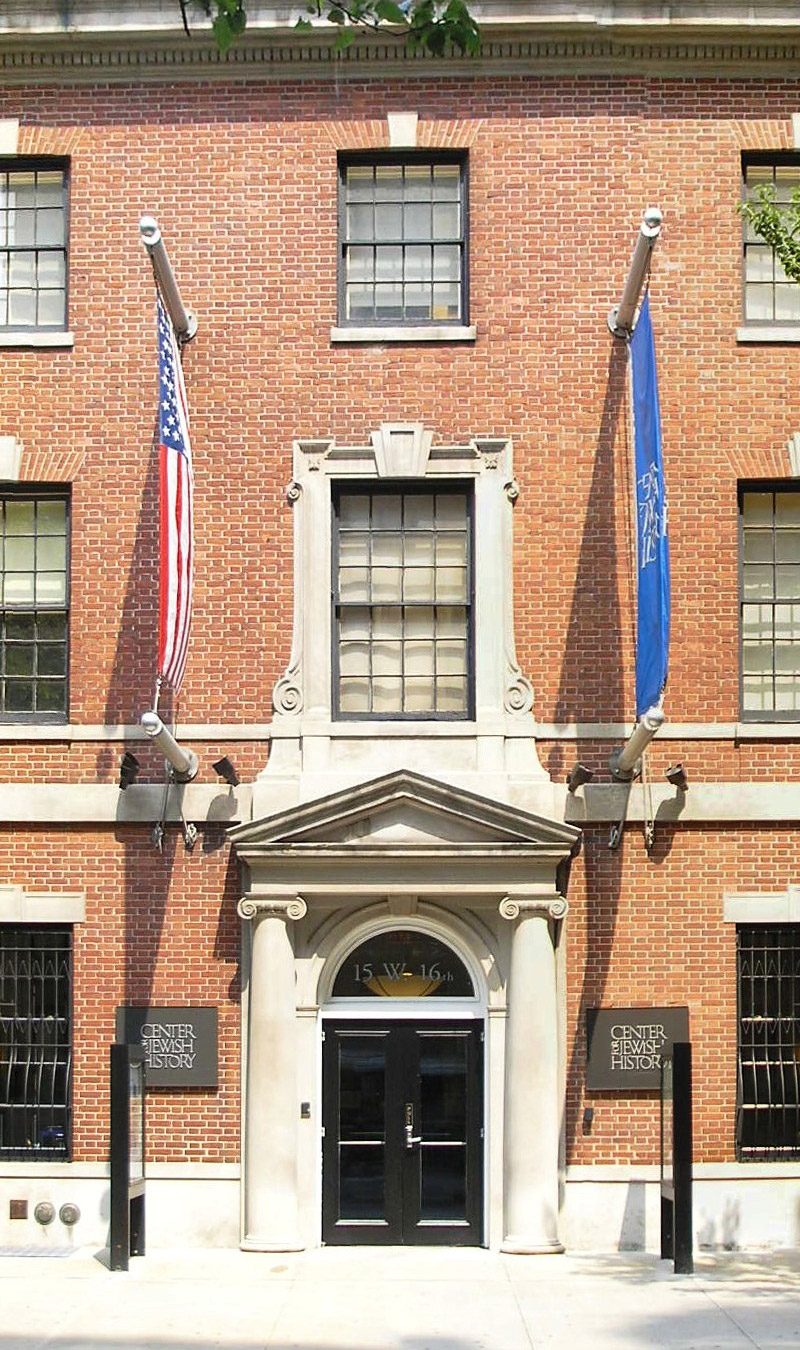book talk and concert
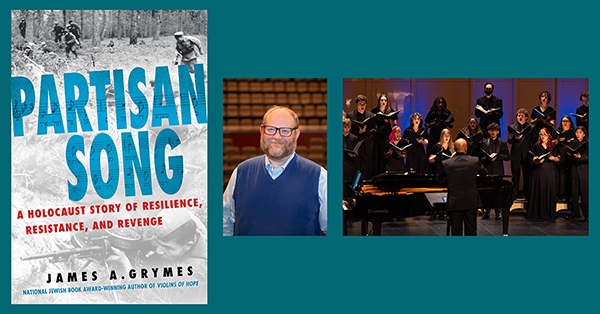
Partisan Song: Stories and Music of Holocaust Resistance – In-Person Program
Speaker: Dr. James A. Grymes
Musical performances by the University Chorale of UNC Charlotte, Dr. Jason Dungee, Director
A civil engineer and amateur musician, Moshe Gildenman had never even held a weapon until the Nazis invaded his hometown in Ukraine and killed 2,200 Jews, including his wife and daughter. Vowing revenge, he escaped to the forest with his son and formed one of the most successful partisan units in the guerilla war to fight the Nazis.
In his latest book, Partisan Song: A Holocaust Story of Resilience, Resistance, and Revenge, historian and National Jewish Book Award-winning author James A. Grymes chronicles the electrifying story of how this peaceful community member became a fierce resistance leader, and how music fueled his courage.
Join us for an evening of storytelling and music, as Grymes and the University Chorale of UNC Charlotte present readings from Partisan Song interspersed with performances of songs that inspired heroism during the Holocaust – music from the Yiddish songbook that Gildenman carried through the war, reconstructions of songs he composed in the ghetto and forest, and beloved anthems such as "Zog nit keyn mol." Grymes will also briefly introduce each song and English translations will be projected onscreen.
The program will be followed by a reception where the book will be available for purchase and signing.
This program is presented by the University of North Carolina at Charlotte and is supported in part by the Crane Family Charitable Foundation and the Blumenthal Foundation.
About the Speaker
Dr. James A. Grymes is a critically acclaimed author who frequently appears as a public speaker at libraries, museums, synagogues, and universities, as well as prominent venues such as the United Nations Headquarters, Weill Recital Hall at Carnegie Hall, the American Israel Public Affairs Committee (AIPAC) Policy Conference, and the historic 16th Street Baptist Church in Birmingham, Alabama. An internationally respected musicologist, he has been featured in interviews by The New York Times, The Wall Street Journal, ABC News, and CNN. Dr. Grymes lives in Charlotte, North Carolina, where he is Professor of Musicology at the University of North Carolina at Charlotte. He is a recipient of a National Jewish Book Award for his earlier work Violins of Hope: Instruments of Hope and Liberation in Mankind's Darkest Hour.
About the Chorale
The University Chorale of UNC Charlotte (above photo: credit Toby Schuetze), directed by Dr. Jason Dungee, is the flagship choral ensemble of the UNC Charlotte Department of Music. Consisting of both music majors and nonmajors, the Chorale proudly serves as ambassadors of the music department and the University at large, frequently performing in the greater Charlotte area and various locations throughout the southeastern United States. The Chorale has participated in several prestigious performances both domestically and abroad, including in Madrid, Spain for the 25th Anniversary Gala of the Gredos San Diego schools, and Venice, Italy, at the historic St. Mark’s Basilica.
Watch the trailer:
Ticket Info: Free; registration is required.
In-person registration
Livestream registration
Presented by:

Co-presented by:

book talk and concert
lecture
‘Making a Scene’: Returning a Jewish Comic Opera Star to the Stage - Live on Zoom
Leonora Braham (1853-1931), creator of five principal soprano roles in Gilbert and Sullivan’s operettas between 1881 and 1887 (including Yum-Yum in The Mikado, 1885), first appeared in my research during a visit to the West London Synagogue archives in 2015. As Leonora Abraham, she sang in the Synagogue’s choir between 1870 and 1874, prior to her first professional engagement with the German Reed Entertainments. Having featured Braham’s life and work in two further pieces of scholarship, I was inspired by her opening words in a 1930 interview, ‘So someone has found me at last’, to write The Honour: a new 45-minute play with music which returns Braham to the environment in which she was happiest and best known.
This presentation gives an overview of Braham’s life on- and off-stage, and describes the reasons for and methods involved in giving her a platform beyond traditional scholarly materials. Danielle Padley will discuss the challenges of incorporating the subject of a performer’s Jewish background into theatre intended to appeal to and educate a wide and varied audience, and will look ahead to plans for incorporating more performative media into her research on Jewish music-making in Victorian England.
About the Speaker
Dr. Danielle Padley is a musicologist specialising in Jewish music-making in nineteenth-century England. She investigates musical activities within geographically and socially diverse Jewish communities to enhance and challenge accepted narratives about Jewish life in England. She is a Research Fellow at the Woolf Institute and an Affiliated Lecturer at the Faculty of Music, University of Cambridge, where she teaches the module ‘Music at the Margins of Victorian Society’. Danielle has an interdisciplinary publication and research record which explores Jewish musical activity in a variety of contexts, including synagogue worship, education, theatre, concert and drawing-room entertainments, and literary fiction. She is a trained singer and theatre performer, regularly performing both established and new writing within Cambridge’s local theatre scene. She grew up singing in and conducting synagogue choirs, and for nearly 12 years was Musical Director of Cambridge’s Hebrew choir, Kol Echad. Danielle also sings and plays violin, keys, and folk harp with folk-rock band Once Again.
Ticket Info: Free; registration is required.
Presented by:
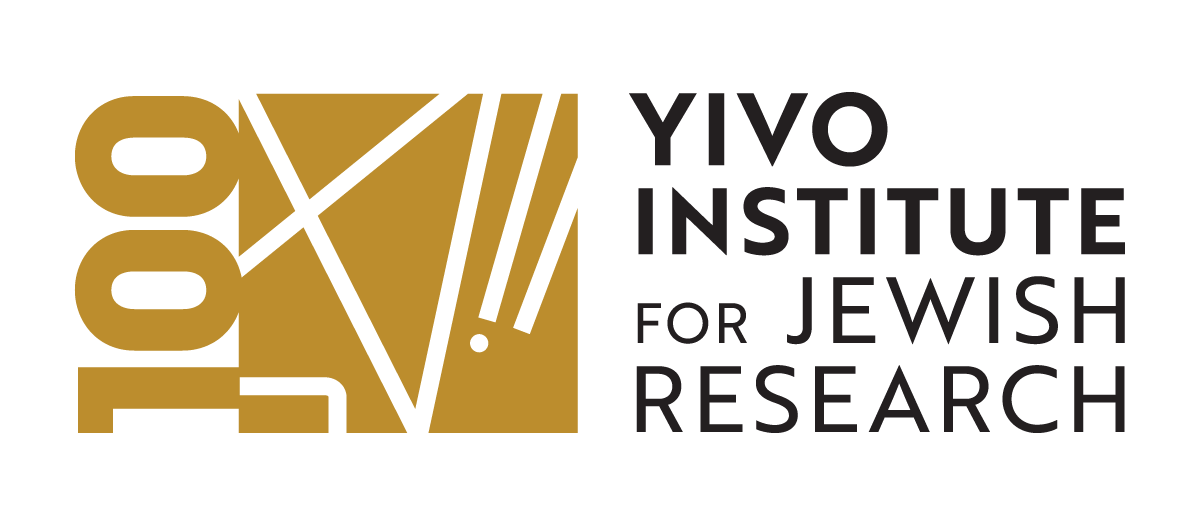
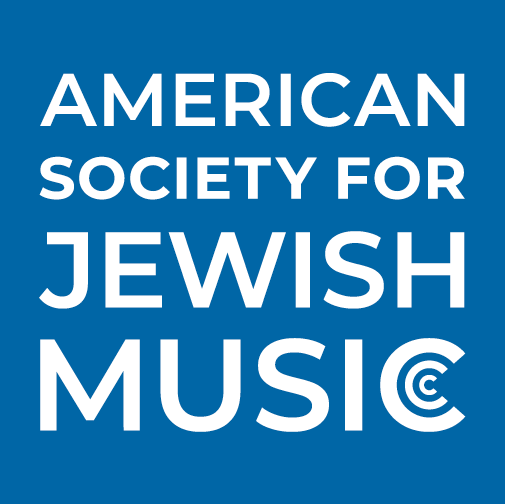
lecture
panel discussion
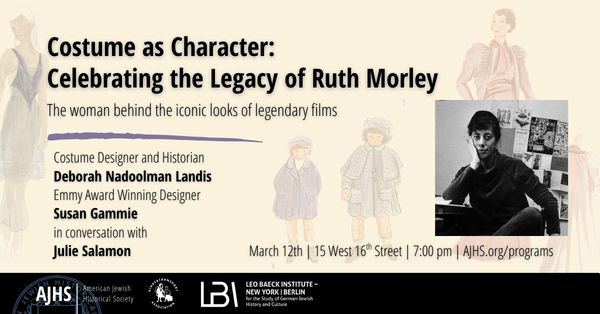
Costume as Character: Celebrating the Legacy of Ruth Morley – In-person Program
Costume designer Ruth Morley was behind the iconic looks of several characters now considered legendary in cinema history. A Kindertransport child refugee from Vienna, in the 1950’s she studied under German-American painter Hans Hofmann and went on to design costumes for opera and ballet before moving into theater, film and television. Her work can be seen in such iconic films as The Hustler (1961), The Miracle Worker (1962, Academy Award nomination), Taxi Driver (1976), Annie Hall (1977), Kramer vs Kramer (1979), One from the Heart (1981), The Chosen (1981), Tootsie (1982, BAFTA nomination) and Ghost (1990). In the 1980’s she began teaching and mentoring costume design graduate students at Brandeis and NYU.
Join panelists Deborah Nadoolman Landis (Costume Designer and Distinguished Professor at UCLA’s School of Theater, Film and Television, Founding Director of the David C. Copley Center for Costume Design), and Susan Gammie (Emmy award-winning costume designer, protege and friend of Ruth Morley), with moderator Julie Salamon (author of The Devil’s Candy, Net of Dreams) for a discussion about Ruth Morley’s career and her impact on the field of costume design. Additional special guests to be announced!
Ticket Info: General Admission: $10, Students: $5, IATSE local 829 & Kindertransport Association members: $5
Presented by:

panel discussion
book talk
She Made the Earth Move: Carole King and Jewish Identity - In-person Program
This presentation features a book talk by journalist and author Jane Eisner on Carole King: She Made the Earth Move, in which she traces the professional accomplishments and personal challenges of pop icon Carole King, exploring her unique contribution to American music.
Carole King’s extraordinary career has defined American popular music for more than half a century. Born in New York City in 1942, she shaped the soundtrack of 1960s teen culture with such songs as “Will You Love Me Tomorrow,” one of many Brill Building classics she wrote with her first husband, Gerry Goffin. She was a leading figure in the singer-songwriter movement of the 1970s, with dozens of Billboard Hot 100 hits and music awards—her 1971 album Tapestry won a record four Grammys. Yet she struggled to reconcile her fame with her roles as a wife and mother and retreated to the backwoods of Idaho, only to emerge in recent years as a political activist and the subject of the Tony-winning Broadway show Beautiful: The Carole King Musical.
In her book, Eisner places King’s life in historical and cultural context, revealing details of her humble beginnings in Jewish Brooklyn, the roots of her musical genius, her four marriages, and her anguish about public life. Drawing on numerous interviews as well as historical and contemporary sources, this book brings to life King’s professional accomplishments, her personal challenges, and her lasting contributions to the great American songbook.
About the Speakers
Jane Eisner is an accomplished journalist, educator, and nonprofit leader. She is author of Carole King: She Made the Earth Move from Yale University Press. Former editor-in-chief of the Forward and longtime Philadelphia Inquirer editor, she teaches, consults, writes widely, and speaks nationally on journalism, music, and Jewish life.
This program will be held at Hebrew Union College, New York Campus, 1 West 4th Street, New York City
Ticket Info: Free; registration is required.
Presented by:


book talk
lecture
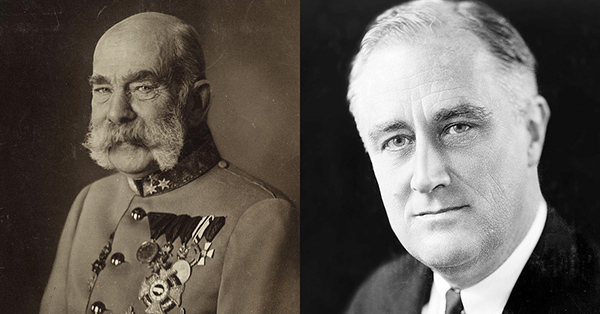
67th Leo Baeck Memorial Lecture by Marsha Rozenblit - Was New York Like Vienna? - In-person Program
Jews who fled Nazi Austria after the Anschluss in 1938 went to many places, but primarily to the United States, where they tried to make new homes for themselves. In so doing, many of them imagined that democratic America resembled the old Habsburg Monarchy, with its tolerance for ethnic diversity. They even imagined that the American president, Franklin Delano Roosevelt, was like the beloved Habsburg Emperor Franz Joseph, and New York was like Vienna. This talk will explore how Jews from Austria coped with American realities and used nostalgia for the Habsburg Monarchy as a way to adjust to their new lives in America.
About our Speaker
Marsha L. Rozenblit is the Harvey M. Meyerhoff Professor of Modern Jewish History at the University of Maryland, where she has been on the faculty since 1978. A social historian of the Jews of the Habsburg Monarchy and its successor states, she is the author of two scholarly books: The Jews of Vienna, 1867-1914: Assimilation and Identity (State University of New York Press, 1983); and Reconstructing a National Identity: The Jews of Habsburg Austria during World War I (Oxford University Press, 2001). She has also co-edited two books: Constructing Nationalities in East Central Europe(Berghahn Press, 2005); and World War I and the Jews: Conflict and Transformation in Europe, the Middle East, and America (Berghahn Press, 2017); and she has written over 35 scholarly articles on such topics as Jewish religious reform in nineteenth century Vienna, Jewish courtship and marriage in 1920s Vienna, and German-Jewish schools in Habsburg Moravia. She served as the president of the Association for Jewish Studies, 2009-2011.
Ticket Info: Free; registration required
Presented by:
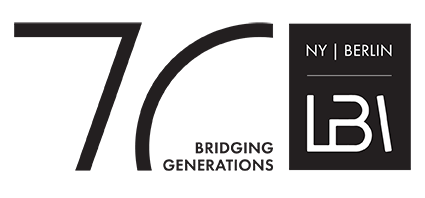
lecture
conversation
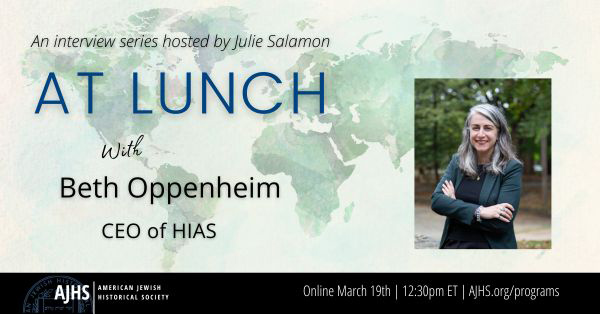
At Lunch with Beth Oppenheim – Live on Zoom
Julie Salamon, New York Times best-selling author, sits down with Beth Oppenheim, CEO of HIAS. Dr. Beth Oppenheim has 23 years of experience working in refugee resettlement and international development. She is an expert on issues of displacement and sustainable systems change with a focus on work in Africa, having lived in and supported organizations in Kenya, Uganda, South Africa, and Mozambique, amongst other countries around the world. She has held leadership positions at two of the U.S.’ ten resettlement agencies, helping rethink the ways in which we continue to preserve welcome for newcomers across the country.
Oppenheim began working at HIAS in October 2023 and has held several senior leadership roles, serving as Chief Advancement Officer, Chief External Relations Officer, and Interim CEO. Under her leadership, HIAS has risen to the challenges facing the humanitarian sector with integrity and courage, centering the Jewish and humanitarian values at the core of the organization’s identity. Oppenheim has led the organization in re-envisioning its programmatic work and assistance for refugees and displaced people in the U.S. and around the world and ensuring the organization’s leading role in advocating against policies that demonize and harm immigrants, refugees and asylum seekers.
She holds a doctorate from the University of Cape Town in South Africa, where she focused on the ways in which local communities play an important role in solving critical resource gaps in the Global South. She also holds a Master of Science in Global Affairs from NYU, and a Bachelor of Arts in Metropolitan Studies and Hebrew and Judaic Studies from NYU. A recognized thought leader in her field, Oppenheim has written and published extensively on development and the NGO sector.
Ticket Info: Free; register online for a Zoom link
Presented by:

conversation
book launch
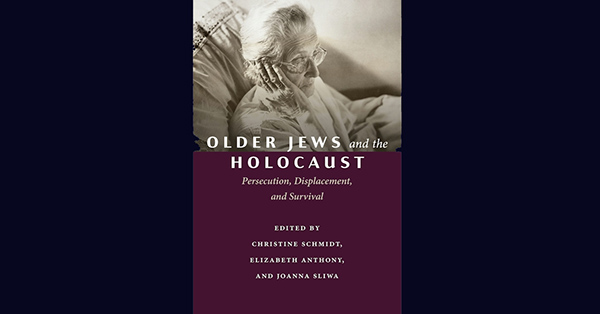
Older Jews and the Holocaust - In-person Program
Join the Claims Conference, the Leo Baeck Institute, and the editors and contributors of the newly published book for a discussion about the experiences of German and Austrian older adults during and after the Holocaust.
How did older German and Austrian Jews experience the Holocaust? What do we know about care for older and aging survivors immediately after the Holocaust? How has this history informed the efforts of the Claims Conference on behalf of Jewish Holocaust survivors over the years? The volume editors and contributors, all Holocaust historians, will discuss these and other questions at the launch of their groundbreaking book that explores the multifaceted lives of elderly Jewish victims and survivors, Older Jews and the Holocaust: Persecution, Displacement, and Survival (Wayne State University Press, coming out on March 17, 2026).
Books will be available for purchase and signing.
With Assistance from the Conference on Jewish Material Claims Against Germany
Supported by the German Federal Ministry of Finance
Project Partners: The Ernst Hecht Charitable Foundation, the United States Holocaust Memorial Museum, and the Wiener Holocaust Library.
About the Speakers
Dr. Elizabeth Anthony is the director of Visiting Scholar Programs at the United States Holocaust Memorial Museum’s Jack, Joseph and Morton Mandel Center for Advanced Holocaust Studies. Her book, The Compromise of Return: Viennese Jews after the Holocaust, was co-published by Wayne State University Press and the U.S. Holocaust Memorial Museum in 2021 and was a commended finalist for The Wiener Holocaust Library’s Ernst Fraenkel Book Prize. Anthony was co-editor of and a contributor to Freilegungen: Spiegelungen der NS-Verfolgung und ihrer Konsequenzen, Jahrbuch des International Tracing Service (2015). She also has published chapters in Lessons and Legacies Volume XII (2017); The Future of Holocaust Memorialization: Confronting Racism, Antisemitism, and Homophobia through Memory Work (2015); and the Nürnberger Institut für NS-Forschung und jüdische Geschichte des 20. Jahrhunderts Jahrbuch 2010. Anthony received a PhD in history at Clark University in 2016.
Dr. Michael Geheran is Associate Professor of History and Deputy Director of the Resnick Center for Holocaust and Genocide Studies at the United States Military Academy at West Point. He is the author of Comrades Betrayed: Jewish World War I Veterans under Hitler (Cornell, 2020) and a contributing co-editor of Beyond Inclusion and Exclusion: Jewish Experiences of the First World War in Central Europe (Berghahn, 2018). He is currently completing a digital history of General Roméo Dallaire’s leadership during the Rwandan Genocide.
Dr. Christine Schmidt is Acting Co-Director of The Wiener Holocaust Library. Her research has focused on the history of postwar tracing and documentation efforts, the concentration camp system in Nazi Germany, and comparative studies of collaboration and resistance in France and Hungary. She is currently writing a social history and archival biography of a collection of survivor accounts recorded by The Wiener Library in the 1950s-60s. She has a forthcoming chapter in Holocaust Memory in the United Kingdom in the 1960s (Bloomsbury, 2025). Schmidt has recently published articles in the Journal of Transport History, the European Review of History, American Imago, Culture Unbound, and The Journal of Holocaust Research, and is co-editing (with Sandra Lipner, Clara Dijkstra, and Charlie Knight) Letters and the Holocaust: Methodology, Cases, and Reflections (Bloomsbury, 2025) and (with Suzanne Bardgett and Dan Stone) Survivors of Nazi Persecution - Beyond Camps and Forced Labour (Palgrave, 2025).
Dr. Joanna Sliwa is a Historian at the Conference on Jewish Material Claims Against Germany (Claims Conference) where she also administers the Saul Kagan Fellowship in Advanced Shoah Studies, and the University Partnership in Holocaust Studies. Joanna’s research concerns the history of the Claims Conference, compensation for Holocaust survivors, and Jewish property restitution. Joanna's own scholarship focuses on the Holocaust in Poland and on Polish Jewish history. She is the author of Jewish Childhood in Kraków: A Microhistory of the Holocaust (Rutgers University Press, 2021), which received the 2020 Ernst Fraenkel Prize from The Wiener Holocaust Library, and The Counterfeit Countess: The Jewish Woman Who Rescued Thousands of Poles during the Holocaust (with Elizabeth White; Simon and Schuster, 2024).
Chen Yurista is Chief Experience Officer at the Claims Conference. An attorney, licensed to practice in Israel and in the US, Chen previously served as the Executive Director of the Israeli office of the Claims Conference, worked on the Swiss Banks settlement, and was the CEO of the Foundation for the Benefit of Holocaust Victims in Israel. He graduated with honors from the faculties of Law and Economics at Tel Aviv University and holds an MBA from The Kellogg School of Management at Northwestern University. In his current position Chen continually evaluates practices, methods and strategies to improve the Claims Conference’s interactions with survivors in over 45 countries. Chen is a third generation to Holocaust survivors from Poland and from Germany.
Ticket Info: Free; registration required
Presented by:

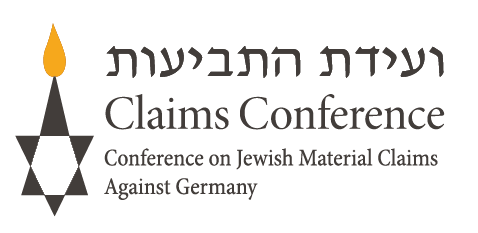
book launch
book discussion
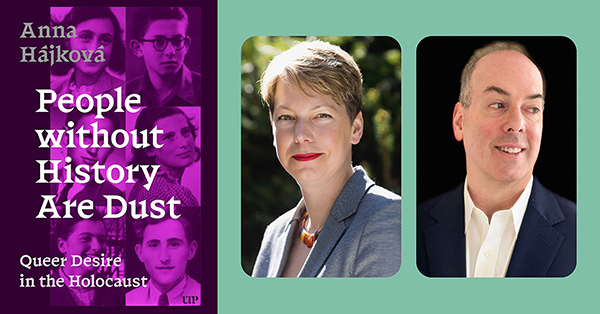
People Without History Are Dust: Queer Desire in the Holocaust - In-Person Program
Where are the stories of great queer love in the Holocaust? There are almost none. Anna Hájková, author of People without History are Dust: Queer Desire in the Holocaust (2025), explains why the history of same-sex desire in the Shoah, that is, queerness among Jews persecuted by the Nazis for their race, has been excluded and marginalized, and how its return to our understanding of the Holocaust can offer an inclusive and feminist history of this genocide. Based on original and extensive archival research, Dr. Hájková's book offers groundbreaking insight into the queer history of the Holocaust.
Dr. Hájková, Reader of Modern European Continental History at the University of Warwick, United Kingdom, will introduce her book – winner of a National Jewish Book Award – in conversation with Benjamin Carter Hett, Professor of History, Hunter College and the Graduate Center, City University of New York. Content Advisory: This book talk includes sensitive material related to sexual violence, which may be distressing. Attendee discretion is advised.
People without History are Dust: Queer Desire in the Holocaust will be available for purchase and signing after the program.
About the Speakers
Anna Hájková is Reader of Modern European Continental History at the University of Warwick, United Kingdom. She currently serves the University as Director of the European History Research Centre, and from 2021-2025, served as Co-Director of the Warwick Centre for Global Jewish Studies. She earned her Ph.D. in Modern European History from the University of Toronto. Dr. Hájková is the author of, among other books, The Last Ghetto: An Everyday History of Theresienstadt (2020) and People without History are Dust: Queer Desire in the Holocaust (2025). She is the pioneer of queer Holocaust history.
Benjamin Carter Hett earned a J.D. at the University of Toronto and practiced litigation in Toronto before earning a Ph.D. in history at Harvard University. Since 2003, he has taught at Hunter College and the Graduate Center, City University of New York. Dr. Hett has authored six books including The Death of Democracy: Hitler’s Rise to Power and the Downfall of the Weimar Republic (2018), winner of the 2019 Vine Award for History and named one of the year’s best books by The Times of London and the Daily Telegraph; and The Nazi Menace: Hitler, Churchill, Roosevelt, Stalin, and the Road to War (2020), named an editors’ choice by the New York Times Book Review.
Ticket Info: Pay what you wish; registration is required
Presented by:


book discussion
lecture
Holocaust Distortion in Poland: A Comparative European Perspective - Live on Zoom
Holocaust distortion in Poland involves reshaping or minimizing facts about the Holocaust, often emphasizing Polish victimhood while obscuring instances of local collaboration, participation, or indifference. It appears in political rhetoric, memory laws, public commemorations, and attacks on critical scholarship. YIVO’s Poland vs. Holocaust History series examines these dynamics and situates the Polish case within a broader European context.
This lecture by Jan Grabowski will examine the phenomenon of Holocaust distortion in Poland within a broader comparative European framework. It explores how historical narratives about the Holocaust are reshaped, minimized, or selectively reinterpreted in public discourse, politics, education, and law. Particular attention will be paid to the interaction between state-sponsored memory policies, nationalist narratives, and scholarly research, as well as to the pressures faced by historians and educators. By comparing developments in Poland with those in other European countries—including Hungary, Lithuania, Germany, and Russia—the lecture highlights both shared patterns and national specificities in confronting difficult pasts. The discussion addresses legal instruments, public controversies, commemorative practices, and the role of civil society in shaping Holocaust memory. Ultimately, the lecture asks how and why Holocaust distortion emerges, what distinguishes distortion from legitimate historical debate, and what the consequences are for democratic culture, academic freedom, and Europe’s collective understanding of the Holocaust.
Buy Whitewash: Poland and the Jews by Jan Grabowski.
About the Speaker
Jan Grabowski is a Professor of History at the University of Ottawa and a Fellow of the Royal Society of Canada. His interests focus on the Holocaust in Poland and, more specifically, on the relations between Jews and Poles during the war. He has authored/co-authored or edited twenty books and published more than eighty articles published in learned journals in many languages. Grabowski’s book Hunt for the Jews: Betrayal and Murder in German-Occupied Poland has been awarded the Yad Vashem International Book Prize for 2014. In 2018 he co-edited and co-authored “Dalej jest noc” [Night Without End] (a two-volume study of the fate of the Jews in selected counties of occupied Poland). Night Without End was published in 2022 in English by Indiana University Press. Grabowski’s most recent book On Duty: The Role of the Polish “Blue” Police in the Holocaust was published in Poland in March 2020, and the English edition was published in May 2024 by Yad Vashem Presses.
Ticket Info: Free; registration is required.
Presented by:

lecture
book talk
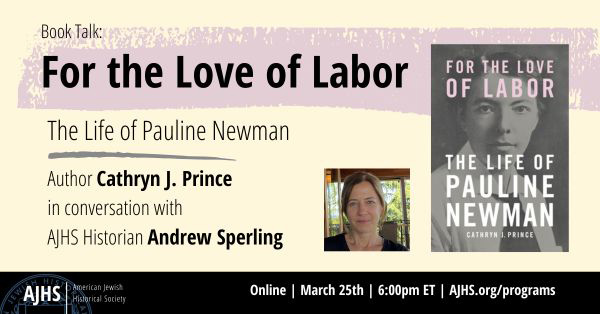
For the Love of Labor: The Life of Pauline Newman – Live on Zoom
Join author Cathryn J. Prince and moderator Andrew Sperling for a discussion on For the Love of Labor: The life of Pauline Newman.
From her start as one of the youngest activists in US history, Pauline Newman helped shape the International Ladies’ Garment Workers’ Union (ILGWU) into a dominant force in industrial America. Cathryn J. Prince tells the story of a self-educated Jewish immigrant who dedicated herself to a legion of causes and lifelong battles against sexism and classism.
Prince follows Newman’s life from a youth split between Lithuania and New York City sweatshops to her work as an advisor to New Deal–era labor secretary Frances Perkins. Newman’s long hours at the Triangle Shirtwaist Factory informed her entrée into labor activism. In the following years, she tirelessly advocated for workers, ran for New York Secretary of State as a socialist, and became the first woman to serve as the ILGWU general organizer. Her interest in the health of workers led to service on the Joint Board of Sanitary Control and a decades-long term as education director of the ILGWU health center. Membership in Eleanor Roosevelt’s circle opened doors to government positions and advisory roles that continued into the postwar era. Prince also weaves in the details of Newman’s fifty-year relationship with a woman, her struggles with her sexual identity, and her final years.
Engaging and panoramic, For the Love of Labor is the first major biography of an important figure in labor and women’s history.
About the Author
Cathryn J. Prince is an adjunct professor of journalism at Fordham University. Her books include Queen of the Mountaineers: The Trailblazing Life of Fanny Bullock Workman and American Daredevil: The Extraordinary Life of Richard Halliburton, the World’s First Celebrity Travel Writer.
Ticket Info: Free; register online for a Zoom link
Presented by:

book talk
lecture
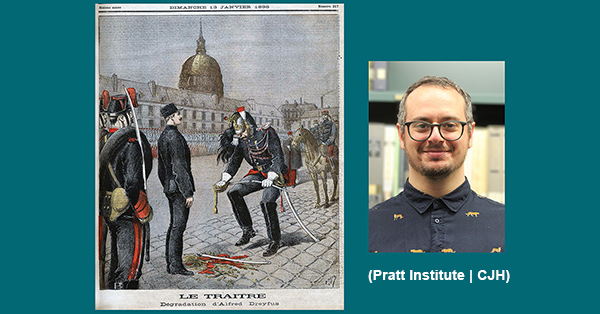
Laughing at the Dreyfus Affair: Cartoon Antisemitism and the Politics of Ridicule - In-person Program
An evening lecture with the Center’s Leon Levy fellow Dr. Andrew Kotick (Pratt Institute | CJH)
The Dreyfus Affair was arguably the most famous political and judicial scandal of 19th century France. It erupted in 1894 when the French officer Alfred Dreyfus (1859-1935) was accused and convicted of being a German spy. Just two years after Dreyfus's conviction and exile, however, the accusations against him were revealed to be an antisemitic conspiracy. In the years that followed, his case went through several appeals, and in the summer of 1906, the verdict against him was overturned.
To this day, the Dreyfus Affair is seen as the culmination of antisemitism in 19th-century France and is remembered in historical memory as a fundamental conflict of values concerning morality and justice in the Third French Republic. At the same time, the affair was also a media spectacle. The Dreyfus Affair occurred in an era when larger print runs for newspapers together with surging literacy rates produced growing numbers of readers in French society. Within this media landscape, Dr. Andrew Kotick's lecture examines the affair from a new perspective by exploring the laughter it provoked. Using satirical caricatures and drawings, he investigates how visual humor shaped the emotional climate of the affair and contributed to making antisemitism a mass phenomenon. Based on examples taken from illustrated press, especially the popular weekly newspaper, Le Rire, Kotick shows how ridicule was used as a political weapon to influence public opinion, define belonging and exclusion, and reshape modern mass politics. By analyzing the visual culture of the affair, Kotick illustrates how laughter became one of the most effective forms of expression in political life.
Co-sponsored by the NYU Center for the Study of Antisemitism and the Institute of French Studies at NYU
Image: Henri Meyer. "Le traître : Dégradation d’Alfred Dreyfus" cover illustration for Le Petit Journal : supplément illustré (13 January 1895). Courtesy of Wikimedia Commons (public domain).
Ticket Info: Free; registration is required.
Presented by:

lecture
book talk
Nazi Germany, Soviet Russia, and the Fate of the Jews - Live on Zoom
In the West, World War II is commonly understood as the Allies’ struggle against Nazism. Often elided, if not simply forgotten, is the Soviet Union’s crucial role in that fight. With World Enemy No. 1: Nazi Germany, Soviet Russia, and the Fate of the Jews, Jochen Hellbeck rectifies this omission by relocating the ideological core of the conflict. It was not the Western powers but Communist Russia that Nazi Germany viewed as an existential threat. Jewish revolutionaries, the Nazis believed, had seized power in 1917 and were preparing the Soviet state to destroy Germany and the world. And so, on June 22, 1941, a German army of three million attacked the Soviet Union to exterminate “Judeo-Bolshevism,” Hitler’s cardinal obsession. While Europe’s Jews were expelled, exiled, and persecuted by the Nazis, Soviet Jews were immediately slated for elimination. The Soviet lands thus became ground zero for systematic extermination, which was only later extended to all Jews, igniting the Holocaust.
Join YIVO for a discussion with Hellbeck about this book, led by historian Jeffrey Veidlinger.
About the Speaker
Jochen Hellbeck is Distinguished Professor of History at Rutgers University, specializing in modern Russia, the Soviet Union, and the history of World War II. The recipient of fellowships from the New York Public Library’s Dorothy and Lewis B. Cullman Center for Scholars and Writers, the John Simon Guggenheim Memorial Foundation, and the American Academy in Berlin, among others, he is the acclaimed author of Stalingrad: The City That Defeated the Third Reich, Revolution on My Mind: Writing a Diary under Stalin, and the online project “Facing Stalingrad.”
Jeffrey Veidlinger is the Joseph Brodsky Collegiate Professor of History and Judaic Studies and Inaugural Director of the Raoul Wallenberg Institute at the University of Michigan. His most recent book, In the Midst of Civilized Europe: The Pogroms of 1918–1921 and the Onset of the Holocaust, won the Stan Vine Book Award and a Canadian Jewish Literary Award. He is also the author of The Moscow State Yiddish Theater: Jewish Culture on the Soviet Stage, Jewish Public Culture in the Late Russian Empire, and In the Shadow of the Shtetl: Small-Town Jewish Life in Soviet Ukraine.
Ticket Info: Free; registration is required.
Presented by:

book talk
book club
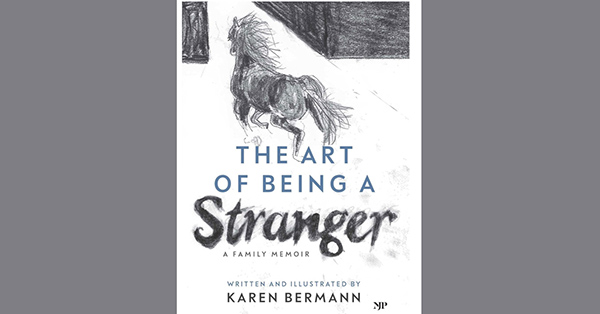
The Art of Being a Stranger - Live on Zoom
Karen Bermann grew up in the mad orbit of her father, Fritz, the rebellious child of a Viennese Orthodox Jewish family who fled Europe alone as an adolescent in the late 1930s. An irreverent, comic, rageful man with three names, who spoke three languages, lived on three continents, and always kept his papers in order, Fritz lived a life shaped by survival. In this memoir, told in alternating voices in brief, lyrical episodes, Bermann explores not only the mystery of her father but also the inheritance he passed on: intergenerational trauma, fragile familial bonds, and a fraught sense of belonging.
The Art of Being a Stranger is a darkly funny narrative told in poetry, prose, and mixed-media drawings. While her father taught her how to save herself, Bermann realized early on that what she truly needed was to be saved from him. Set against the backdrop of 1960s and 1970s New York City, The Art of Being a Stranger is a poignant comic-drama that offers an intimate, layered exploration of parents and children in the shadow of history.
Text: University of Toronto Press
Guest and Author: Karen Bermann
Karen Bermann is professor emerita of architecture at Iowa State University. She worked on sweat equity rehabilitation in her native New York in the 1970s and 80s, studied architecture at The Cooper Union, and taught design and drawing in Iowa and in Rome, where she lives now
Ticket Info: Free; registration required
Presented by:

book club
lecture
Klezmer and Other Displaced Musics in America - Live on Zoom
In this lecture, scholar and performer Walter Zev Feldman explores the vibrant, yet largely concealed, background of the klezmer revitalization in New York, Philadelphia and other American cities in the 1960s, decades after the period when America served as a crucible for immigrants and their diverse musical expressions. Drawing from his new memoir, From the Bronx to the Bosphorus, (Fordham University Press) Feldman will reflect on how he was instrumental in creating the klezmer revitalization in the US after learning from Greek immigrant musicians and then from the eminent klezmer Dave Tarras (1897-1989).
This program is supported, in part, by public funds from the New York City Department of Cultural Affairs, in partnership with the City Council.
About the Speaker
Walter Zev Feldman is a leading researcher in Ottoman Turkish and Jewish music, instrumental in the 1970s Klezmer Revival. His notable works include Klezmer: Music, History, and Memory (2016) and Music of the Ottoman Court: Makam, Composition and the Early Ottoman Instrumental Repertoire (1996; 2024, revised edition). Feldman has extensively studied the instrumental traditions of Moldova’s klezmer and lautar communities. He is the Academic Director of the Klezmer Institute.
Ticket Info: Free; registration is required.
Presented by:

lecture
lecture
Ashkenazi Jewish Food - Live on Zoom
In celebration of YIVO's 101st year, join us for our new Yiddish Civilization 101 series. Each program will highlight key topics in Ashkenazi history and culture, including shtetl life, Jewish humor, and Ashkenazi foodways, amongst others. Guided by expert scholars, each lecture will provide a greater understanding of Jewish life in Eastern Europe and its diasporas.
Ashkenazi Jewish foodways embrace numerous regional culinary cultures from Eastern and Central Europe. They are notable for using locally available ingredients to conform to the rituals of Jewish life, most distinctively the slow-simmered stews that developed for the Sabbath. Robust grains like barley and buckwheat, tangy dill pickles and pickled herring, comforting chicken soup with matzo balls or kreplach, and sweet pastries stuffed with poppyseed and nuts are some of the most characteristic flavors. When masses of Jews migrated to America in the late nineteenth century, they faced not only unfamiliar foods but also challenges to their culinary practices. This lecture by Darra Goldstein will discuss how Ashkenazi Jews adapted to life in their new country by adopting unfamiliar ingredients and engaging in debates about nutrition and the importance of domestic traditions, all the while keeping the beloved flavors of the Old Country intact. The lecture will conclude with a look at the American Jewish foodscape today.
About the Speaker
Darra Goldstein is the Willcox B. and Harriet M. Adsit Professor of Russian, Emerita at Williams College and Founding Editor of Gastronomica: The Journal of Food and Culture, named the 2012 Publication of the Year by the James Beard Foundation. She has published widely on literature, culture, art, and cuisine and consulted for the Council of Europe on using food to promote tolerance and diversity. Goldstein has also authored five award-winning cookbooks, including The Georgian Feast (1994 IACP Julia Child Cookbook of the Year) and is series editor of California Studies in Food and Culture (University of California Press). In 2013, she was named Distinguished Fellow in Food Studies at the Jackman Humanities Institute, University of Toronto, and in 2016 held the Macgeorge Fellowship at the University of Melbourne.
Ticket Info: Free; registration is required.
Presented by:

lecture
conversation
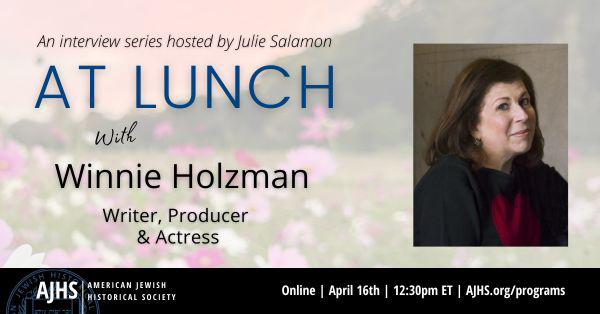
At Lunch with Winnie Holzman – Live on Zoom
Winnie Holzman is the writer (with renowned composer/ lyricist Stephen Schwartz) of the hit musical Wicked, which has been running for over 20 years on Broadway, and has been produced all over the world. She also co-wrote both screenplays for the movie adaptations of Wicked.
After graduating from Princeton University, Winnie went to New York City where she and three friends formed a comedy group, performing in various venues Off Off Broadway. She was accepted into the first class of the newly formed NYU Musical Theatre Program, where she studied with such luminaries as Arthur Laurents and Stephen Sondheim. Her thesis musical, Birds of Paradise, (written with composer David Evans) was eventually produced off-Broadway, directed by Laurents.
Relocating to Los Angeles, she was asked to join the writing staff of the groundbreaking TV drama thirtysomething, and went on to create another memorable TV series– My So-Called Life.
Other TV credits include Once and Again, (reuniting with her mentors, Ed Zwick and Marshall Herskovitz) Huge ( collaborating with her daughter, Savannah Dooley) and Roadies (with Cameron Crowe).
Her (non-musical) play Choice was recently produced at the McCarter Theatre in Princeton, New Jersey. She’s written two other plays with her husband, actor Paul Dooley: Post-its: Notes on a Marriage, and Assisted Living. Also an actress, she appeared in the movie Jerry Maguire and as Larry David’s wife’s therapist on Curb Your Enthusiasm.
Winnie is currently at work on an original drama series for HBO, which will reunite her with the star of My So-Called Life, Claire Danes.
Ticket Info: Free; register online for a Zoom link
Presented by:

conversation
lecture
The Cantorial “Golden Age” in America - Live on Zoom
In this lecture demonstration, scholar-musician Jeremiah Lockwood discusses some of the major stars of the cantorial “golden age” and takes a deeper look at the emergence of khazones (the Yiddish word for cantorial music) as a form of popular culture in the US in the early 20th century. Taking over from Europe as the center point of cantorial culture after World War I, cantors in America were major stars of radio, concert, Yiddish theater, and even the emerging sound film industry. Alongside the popularity of cantors as artists and public representatives of Jewish culture there developed a discourse of critique of cantors and their populist art, sometimes referred to as hefker khazones (cantorial music of abandonment) by critics. This lecture will explore the phenomenon of cantorial music as popular culture and will include samples of historic recordings of American cantors of the Jewish immigrant era.
This program is supported, in part, by public funds from the New York City Department of Cultural Affairs, in partnership with the City Council.
About the Speaker
Jeremiah Lockwood is a scholar and musician, working in the fields of Jewish studies, performance studies, and ethnomusicology. He is the founder of the band, The Sway Machinery, and is currently a Fellow at the Katz Center for Advanced Judaic Studies at UPenn. His work engages with issues arising from peering into the archive and imagining the power of “lost” forms of expression to articulate keenly felt needs in the present. His book Golden Ages: Hasidic Singers and Cantorial Revival in the Digital Era was published by University of California Press in 2024.
Ticket Info: Free; registration is required.
Presented by:

lecture
panel discussion
The Future of Holocaust Memory: Poland and Beyond - Live on Zoom
Holocaust distortion in Poland involves reshaping or minimizing facts about the Holocaust, often emphasizing Polish victimhood while obscuring instances of local collaboration, participation, or indifference. It appears in political rhetoric, memory laws, public commemorations, and attacks on critical scholarship. YIVO’s Poland vs. Holocaust History series examines these dynamics and situates the Polish case within a broader European context.
This discussion panel will reflect on the future of Holocaust memory in Poland and in a broader international context. Bringing together Jan T. Gross, Elzbieta Janicka, and Jan Grabowski, the conversation will address the evolving challenges facing Holocaust remembrance amid political polarization, historical revisionism, and generational change. The panelists will consider the roles of scholarship, education, public debate, and cultural institutions in sustaining honest engagement with the past. The discussion will also explore how national and transnational perspectives can coexist, and what is at stake for historical truth, democratic values, and moral responsibility in shaping the future of Holocaust memory.
Buy Whitewash: Poland and the Jews by Jan Grabowski.
About the Speaker
Jan T. Gross is the Norman B. Tomlinson ‘16 and ‘48 Professor of War and Society, Emeritus at Princeton University. He was a 2001 National Book Award nominee for his widely acclaimed Neighbors: The Destruction of the Jewish Community in Jedwabne, Poland. His most recent book, Fear: Anti-Semitism in Poland after Auschwitz, was named one of the best books of the year by The Washington Post.
Elzbieta Janicka is a historian of literature, cultural anthropologist, and visual artist. She received her M.A. at the Université Paris VII Denis Diderot and her Ph.D. and postdoctoral degree at Warsaw University. Janicka is the author of Sztuka czy Naród? [Art or the Nation?] (Kraków: Universitas, 2006) and Festung Warschau [Forteress Warsaw] (Warszawa: Krytyka Polityczna, 2011). She co-authored Philo-Semitic Violence. Poland’s Jewish Past in New Polish Narratives (Lanham, MD: Rowman & Littlefield, 2021; with Tomasz Zukowski) and This Was Not America: A Wrangle Through Jewish-Polish-American History (Boston: Academic Studies Press, 2022; with Michael Steinlauf). Her individual exhibitions are: Ja, fotografia (1998); Miejsce nieparzyste [The Odd Place] (2006); and Inne Miasto [Other City] (2013, with Wojciech Wilczyk). Her research pertains to the identity and community building function of Polish antisemitism as well as the place and role of the Polish majority in the structure of the Holocaust. She works at the Institute of Slavic Studies of the Polish Academy of Sciences.
Jan Grabowski is a Professor of History at the University of Ottawa and a Fellow of the Royal Society of Canada. His interests focus on the Holocaust in Poland and, more specifically, on the relations between Jews and Poles during the war. He has authored/co-authored or edited twenty books and published more than eighty articles published in learned journals in many languages. Grabowski’s book Hunt for the Jews: Betrayal and Murder in German-Occupied Poland has been awarded the Yad Vashem International Book Prize for 2014. In 2018 he co-edited and co-authored “Dalej jest noc” [Night Without End] (a two-volume study of the fate of the Jews in selected counties of occupied Poland). Night Without End was published in 2022 in English by Indiana University Press. Grabowski’s most recent book On Duty: The Role of the Polish “Blue” Police in the Holocaust was published in Poland in March 2020, and the English edition was published in May 2024 by Yad Vashem Presses.
Ticket Info: Free; registration is required.
Presented by:

panel discussion
book talk
Songs of Translation: Bene Israel Performance from India to Israel - Live on Zoom
The Bene Israel are a Jewish community from western India who, over centuries, developed a distinctive identity in relation to other Jewish and non-Jewish communities, translating their sounds, words, and practices to have uniquely Marathi Jewish meanings. Some men sing Marathi Jewish songs, but over the past half century, women have assumed the important cultural role of stewarding these songs for the future. As author Anna C. Schultz demonstrates in her new book Echoes of Translation: Audibility and Relationally in Indian Jewish Women’s Songs, the Bene Israel women are translators who creatively mediate the worlds around them through song; while they may not always be visible, they are audible, and this book amplifies their relational soundings.
Schultz explores sonic translation among the Bene Israel through the metaphor of the echo: a resonant, transformative, relational phenomenon. The voices of Bene Israel women today, like Ovid's Echo, resonate empathically with loved ones they have survived, and, faintly, with those they never knew. Singing this repertoire teaches singers and listeners not only how to be Jewish, but also how to be Bene Israel. It also fosters sociality, providing a medium through which women echo one another, sharing cultural expertise while securing affective ties. But women also echo with one another; that is, they collectively and audibly translate sacred texts as embodied experience in the here and now. Women's repertories and practices were shaped in a richly diverse context, colored by interlinguistic translation between Hebrew, Marathi, Hindi, and English, as well as by other forms of cultural translation: translations from Cochin and Baghdadi Jewish to Bene Israel practice, Christian and Hindu religious discourse to Jewish religious discourse, from one ritual context to another, from men to women, from the written page to embodied performance, and from the past to the present.
About the Speaker
Anna C. Schultz is Professor and Chair of Music at the University of Chicago. As an ethnomusicologist and cultural historian, the twin issues animating her research are music’s power to activate profound religious experience and suture communities, and music as power, that is, music’s role in structuring and dismantling caste, race, gender, nation, and class. Her first book is Singing a Hindu Nation: Marathi Devotional Performance and Nationalism (Oxford University Press, 2013), and her second book is Echoes of Translation: Audibility and Relationality in Indian Jewish Women’s Song (Oxford University Press, 2026). Schultz also writes on race, place, and gender in American country music. With Sumanth Gopinath, she was awarded the H. Colin Slim Award by the American Musicological Society, and she received Honorable Mention for the Society of Ethnomusicology’s Jaap Kunst Prize. Dr. Schultz’s research has been supported by Fulbright-Hays, the American Council of Learned Societies, the American Association of University Women, the Franke Institute of the Humanities, and the Neubauer Collegium, among other organizations.
Ticket Info: Free; registration is required.
Presented by:


book talk
book talk
The Afterlife of Yiddish in German-Jewish Culture, 1818–1938 - Live on Zoom
From the late eighteenth century onwards, as growing circles of the German-Jewish population shifted from speaking Yiddish to German, the once-popular early modern corpus of Old Yiddish literature ceased to be published in the German-speaking lands. But this rich literary corpus did not entirely disappear from the cultural landscape of modern German Jews. In A Lingering Legacy: The Afterlife of Yiddish in German-Jewish Culture, 1818-1938, Aya Elyada shows how Old Yiddish texts continued to be retold, translated, adapted, discussed, and explored in the works of nineteenth and early-twentieth-century German Jewish authors.
In doing so, she uncovers a rich afterlife, in which these beloved Yiddish works were not only newly appreciated as historical monuments, but also served as the focus of lively discussions on a range of pertinent topics within modern German-Jewish culture, including tradition and secularization, acculturation and nostalgia, emancipation and antisemitism, gender relations, and religious reform. Illuminating how modern German-Jewish authors engaged with their premodern Yiddish heritage as central to modern Jewish experience and their distinctive cultural identity, this book unfolds a new dimension to German-Jewish history, culture, and literature.
Join YIVO for a discussion with Elyada about this book, led by Samuel Spinner.
About the Speaker
Aya Elyada is Associate Professor in the Department of History at the Hebrew University of Jerusalem. Her research focuses on Yiddish-German encounters and the social history of language and translation. Before joining the Hebrew University in 2012, she was a visiting PhD student at the University of Munich and a postdoctoral fellow at Duke University. She is the author of A Goy Who Speaks Yiddish: Christians and the Jewish Language in Early Modern Germany.
Samuel Spinner is Associate Professor, Zelda and Myer Tandetnik Chair in Yiddish Language, Literature and Culture at Johns Hopkins University. He specializes in Yiddish and German-Jewish literature and culture from the nineteenth century to the present. He is the author of Jewish Primitivism and is currently working on a book on Holocaust memory. He co-edits the German Jewish Cultures series at Indiana University Press and serves on the editorial board of In geveb.
Ticket Info: Free; registration is required.
Presented by:


book talk
book talk
Menachem Kipnis: Yiddish Folklore and Photographs from Interwar Poland - Live on Zoom
Menachem Kipnis (1878–1942) was one of the early twentieth-century’s greatest Jewish Eastern European ethnomusicologists, folklorists, and photographers. He had a weekly column in the Warsaw Yiddish newspaper Haynt, retelling humorous old folk stories about the fictional Polish town of Chelm, populated exclusively by fools. At the same time, his photographs of Jewish life in Eastern Europe regularly appeared in the Forverts (Forward), the most popular Yiddish daily newspaper in the United States.
Menachem Kipnis, edited by Sheila E. Jelen and translated by Raphael Finkel, brings these photographs and stories into dialogue with one another, bridging the Jewish communities in Poland and in America during the interwar period. This dialogue, between image and text, between European metropolis and American metropolis, captures a key historical moment when American Jews sought to imagine the lives of their coreligionists in the “Old Country” and Eastern European urban Jews sought to distinguish themselves from their Jewish compatriots who were still living in the shtetl.
Join YIVO for a discussion with Jelen and Finkel about this book, moderated by Natan M. Meir.
Learn more about Menachem Kipnis in the YIVO Encyclopedia.
About the Speaker
Sheila E. Jelen is a professor in the Divinity School at the University of Chicago. Her scholarship is in the field of modern Jewish literature and culture, with a particular emphasis on gender and Jewish literacy and the intersection between ethnographic, photographic, and literary discourses in popular reconstructions of pre-Holocaust Eastern European Jewish life in Israel and the United States. She is the author of Salvage Poetics: Post-Holocaust American Jewish Folk Ethnographies and Testimonial Montage: A Family of Israeli Holocaust Testimonies from the Cracow Ghetto Resistance.
Raphael Finkel is professor emeritus of computer science at the University of Kentucky. He compiled the first version of the Jargon File. Finkel is also an activist for the survival of the Yiddish language.
Natan M. Meir is the Lorry I. Lokey Chair in Judaic Studies at Portland State University. He is the author of Kiev, Jewish Metropolis: A History, 1859-1914 and Stepchildren of the Shtetl: The Destitute, Disabled, and Mad of Jewish Eastern Europe, 1800-1939. He lectures widely on Jewish history and culture in Ukraine, Russia, Poland, and the Baltics; Jewish folklore and magic; and Jewish disability history. He is now working on a study of lived Judaism that explores the persistence of folk traditions and magical practices in the lives of ordinary Jews.
Ticket Info: Free; registration is required.
Presented by:

book talk
lecture
Yiddish Theater, George Gershwin, and the Birth of an American Sound - Live on Zoom
As a teenager, George Gershwin attended Yiddish theater regularly. Khantshe in Amerike, by family friend Joseph Rumshinsky, featured a working-class woman asserting her rights and her desires. But not only did the show include a Suffragette Parade—it has also been described as the first Yiddish musical to incorporate American rhythm. This lecture by scholar Ronald Robboy will explore the idea that Gershwin’s internalization of Black Americans’ music was influenced by his early immersion in Yiddish theater.
This program is supported, in part, by public funds from the New York City Department of Cultural Affairs, in partnership with the City Council.
About the Speaker
Ronald Robboy is a musician and independent scholar based in San Diego, where he was a professional cellist for many years and, beginning in the 1970s, an early West Coast experimentalist in the klezmer revival. He has written and lectured extensively on Yiddish theater music, and in 1998 was named Senior Researcher for Michael Tilson Thomas’s Thomashefsky Project. Robboy is leading YIVO Institute’s reconstruction of the score to composer Joseph Rumshinsky’s operetta Khantshe in Amerike (1912), to be performed in New York at the Center for Jewish History in May 2026.
Ticket Info: Free; registration is required.
Presented by:

lecture
book talk
Malka Owsiany Recounts by Mark Turkow - Live on Zoom
First published in Yiddish in 1946 and translated into Spanish in 2001, Malka Owsiany Recounts...: A Chronicle of Our Time by Mark Turkow is now available for the first time in English. Malka Owsiany was only 20 years old when she described the horrors of the Holocaust to Yiddish writer and Jewish community leader Mark Turkow. Malka’s account was among the first Holocaust testimonies available in the immediate postwar years. She discusses rebuilding her life and marrying a fellow survivor, Meir, as well as her memories of the rich Polish Jewish communal life from her youth that was destroyed by the Nazis.
Join us for a talk with translator Sandra Chiritescu about this English translation, in a discussion led by Rachelle Grossman.
About the Speakers
Sandra Chiritescu is Clinical Assistant Professor of Yiddish at New York University. She has previously taught Yiddish at Columbia University and the Worker’s Circle. She holds a BA in German philology from the University of Zurich and a PhD in Yiddish Studies from Columbia University. Her dissertation “Bubbes, Mames and Daughters: Uncovering Twentieth- and Twenty-First Century American Jewish and American Yiddish Feminist Genealogies” brings together her research interests in Yiddish literature and culture, American Jewish literature, feminist and queer theory, and translation theory. Her translation of an early Holocaust survivor testimony from 1946 by a woman is available under the title Malka Owsiany Recounts (Cherry Orchard Press, 2025).
Rachelle Grossman is an assistant professor of comparative literature at the University of Illinois, Urbana-Champaign. Her work focuses on the intersection of Yiddish and its transnational connections with other literatures, languages, and cultures. In her research, she develops a geopolitical approach to literature, focusing especially on the transformation of literary centers and peripheries in the postwar period. She is also interested in technologies of print and how they impact literature as material culture.
Ticket Info: Free; registration is required.
Presented by:

book talk
book talk
The Interracial Left and the International Workers Order, 1930–1954 - Live on Zoom
From Popular Front to Cold War tells the story of the International Workers Order (IWO), an organization founded in 1930 to provide life, burial, and health insurance to its members. The IWO broadened its mission to promote interracial solidarity, support labor unions, combat racism and antisemitism, and champion progressive social programs from the Great Depression into the postwar era.
At its height, the IWO had almost two hundred thousand members drawn from a broad ethnic and racial spectrum of the working class. It operated summer camps, published foreign-language newspapers, and supported a wide range of cultural activities. An early advocate for the United States' entry into World War II, the IWO was also ahead of its time in championing the nascent civil rights movement. After the war, it was declared a subversive organization due to its ties to the Communist Party and disbanded in 1954, though its legacy as a model for working-class cooperation across racial and ethnic differences endures to this day.
Join editor Elissa Sampson and contributors Jennifer Young and Felicia Bevel about this book, in a discussion led by Kate Rosenblatt.
About the Speakers
Elissa Sampson is a Research Associate in Cornell University's Jewish Studies Program. She is an urban geographer who studies how the past is actively used to create new spaces of migration, memory, heritage, and activism. Her life-long interest in migration, diaspora, re-diasporization, and culture has been pursued in the Lower East Side, Brooklyn, Jerusalem, Paris, and elsewhere and points to the dynamic interactions among diasporas in shared spaces/places.
Jennifer Young is the Education Program Manager at the Yiddish Book Center. Jennifer served as the Director of Education at the YIVO Institute, where she also worked as Digital Learning Curator to produce YIVO's first online class, Discovering Ashkenaz. She has also worked at the Tenement Museum, the Lower East Side Jewish Conservancy, and the New York Historical Society. Jennifer received a B.A. in Anthropology and Jewish Studies from McGill University and an M.A. in Anthropology from the University of Illinois. After completing doctoral studies in Jewish history at NYU, she received an M.Ed in Museum Curriculum and Pedagogy from the University of British Columbia. She also serves as part of a scholars' working group dedicated to research and scholarship of the Yiddish Left, sponsored by Cornell University.
Felicia Bevel is an Assistant Professor of History at the University of North Florida. Her research and teaching interests include African American history, twentieth century U.S. history, cultural history, and childhood studies. Her current research examines early twentieth century American cultural productions that romanticized the Old South and circulated outside the U.S. within the larger Pacific world, specifically in Canada and Australia. Her work has been supported over the years by the Ford Foundation, ACLS, and Florida Education fund. At UNF, she teaches courses such as the Civil Rights Movement, the Black Pacific, and Blackness in Archives and has served on the advisory boards of the Digital Humanities Institute and Africana Studies. She is also a faculty member on the Red Hill Cemetery Project, a collaboration between UNF and the Okefenokee Heritage Center and Black Hertiage Committtee to document the history of an African American cemetery in Waycross, GA.
Kate Rosenblatt is the Jay and Leslie Cohen Assistant Professor of Religion and Jewish Studies at Emory University. She is a historian of American religion with a focus on the history and experience of American Jews. She earned a BA in American history from Columbia University (2006), a BA in Bible and Ancient Semitic Languages from the Jewish Theological Seminary (2006), and both an MA in Jewish Studies (2009) and a PhD in American history (2016) from the University of Michigan. Her first book, Cooperative Battlegrounds: Farmers, Workers, and the Search for Economic Alternatives (under contract, History of American Capitalism series, Columbia University) details the efforts of a coalition of Americans – workers, farmers, religious clergy and their laities, labor activists, reforms, state and federal bureaucrats, and others – to put forward an alternative expression of American capitalism by way of producer and consumer cooperatives across the twentieth century. She is also at work on a second book project, a reappraisal of the post-World War II American Jewish left.
Ticket Info: Free; registration is required.
Presented by:

book talk
book talk
Eastern European Jewish Immigrant Bankers and the Shaping of American Finance, 1873–1930 - Live on Zoom
What are immigrants to do when business opportunities abound in their new home, but banks refuse essential financial support? How could they make the journey in the first place without helping hands? In this lively history, Rebecca Kobrin chronicles the turn-of-the-twentieth-century Jewish immigrants who stepped up by doing the lending themselves. Arriving from the Russian Empire and settling primarily in New York, they made livelihoods by assisting fellow Jews, so they could purchase passage to the United States and, after arriving, obtain credit that other lenders would not dare provide. Drawing on previously unexamined archival materials in Russian, Yiddish, German, and English, Credit to the Nation traces the novel practices of bankers who not only enabled the flourishing of American Jewry, but also revolutionized the US financial industry.
Join us for a discussion with Kobrin about this book, led by Annie Polland.
About the Speakers
Rebecca Kobrin is the Russell and Bettina Knapp Associate Professor of American Jewish History at Columbia University. She works in the fields of immigration history, urban studies, business history, Eastern European history and American Jewish History, specializing in modern Jewish migration. She received her B.A. (1994) from Yale University and her Ph.D. (2002) from the University of Pennsylvania. She served as the Blaustein Post-Doctoral Fellow at Yale University (2002-2004) and the American Academy of Jewish Research Post-Doctoral Fellow at New York University (2004-6). Her book Jewish Bialystok and Its Diaspora (Indiana University Press, 2010) was awarded the Jordan Schnitzer prize (2012). She is the editor of Chosen Capital: The Jewish Encounter with American Capitalism (Rutgers University Press, 2012), Salo Baron: Using the Past to Shape the Future of Jewish Studies in America (Columbia University Press, 2022), and is co-editor with Adam Teller of Purchasing Power: The Economics of Jewish History (University of Pennsylvania Press, 2015).
Annie Polland is a public historian, author, and President of the Lower East Side Tenement Museum, where she served as Vice President for Programs and Education from 2009 to 2017. Prior to her return to the Tenement Museum, she served as Executive Director of the American Jewish Historical Society. She is the co-author, with Daniel Soyer, of Emerging Metropolis: New York Jews in the Age of Immigration (New York University Press, 2013). She served as Vice President of Education at the Museum at Eldridge Street, where she wrote Landmark of the Spirit: The Eldridge Street Synagogue (Yale University Press, 2008).
Ticket Info: Free; registration is required.
Presented by:


book talk
book talk
Polish-Jewish Masculinities and the Challenge of Modernity - Live on Zoom
At the turn of the twentieth century, Jewish men in Eastern Europe lived in a social reality in which both Jewish and non-Jewish men and women tested, debated, and redesigned masculinities. Men of Valor and Anxiety by Mariusz Kalczewiak explores how religion, class divisions, antisemitism, new domesticity, and militarization changed masculine ideas and practices in Eastern Europe between the 1890s and 1930s. Kalczewiak’s study ventures into the military barracks, yeshivot study halls, fraternity parties, and Jewish homes to demonstrate how complex Jewish masculinities were between orthodoxy, acculturation, Polish and Jewish nationalisms, and changing notions of domesticity and profession. Men of Valor and Anxiety is the first book to demonstrate how the links between ethnicity and gender were constructed within both global and local contexts.
Join YIVO for a discussion with Kalczewiak about this book, led by Miriam Mora.
About the Speakers
Mariusz Kalczewiak is a Professor of Jewish Studies at the University of Lucerne, Switzerland. He is a social and cultural historian of modern Jewish history, with a focus on Latin America and Eastern Europe. His award-winning book Polacos in Argentina: Polish Jews, Interwar Migration, and the Emergence of Transatlantic Jewish Culture was published in 2020 with the University of Alabama Press. His second book Men of Valor and Anxiety: Polish-Jewish Masculinities and the Challenge of Modernity came out in 2025 with Indiana University Press.
Miriam Mora is a historian of American immigration and ethnic history, with a focus on Jewish American gender identity. Her areas of research interest and specialization include modern Jewish history, gender and antisemitism, genocide studies, Holocaust memory and representation in pop culture, masculinity, history of Irish conflict, and American Jewish acculturation. Her first book, Carrying a Big Schtick: Jewish Acculturation and Masculinity in the Twentieth Century was released from Wayne State University Press in 2024. She previously served as Academic Director at the Center for Jewish History in New York City.
Ticket Info: Free; registration is required.
Presented by:

book talk
